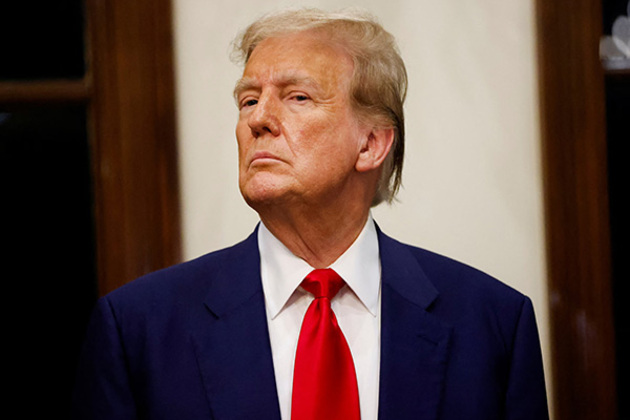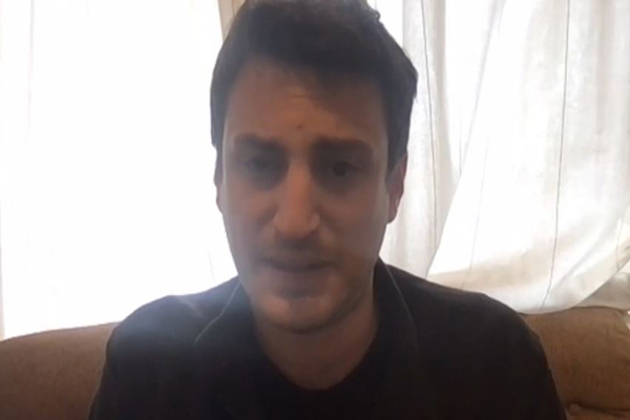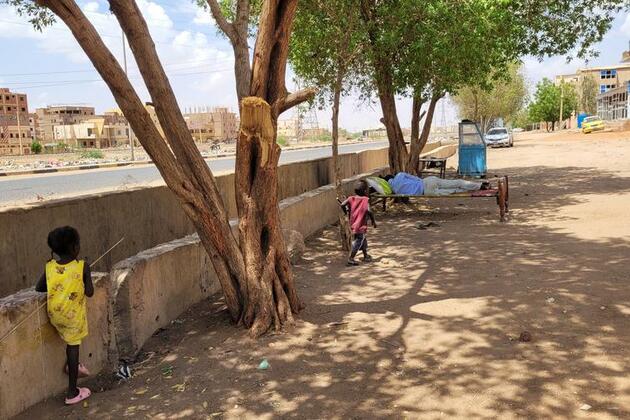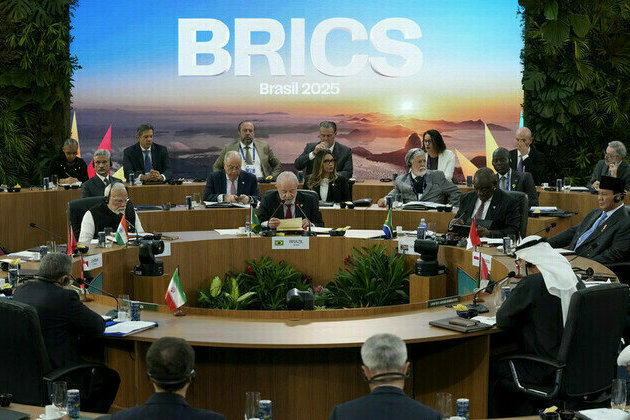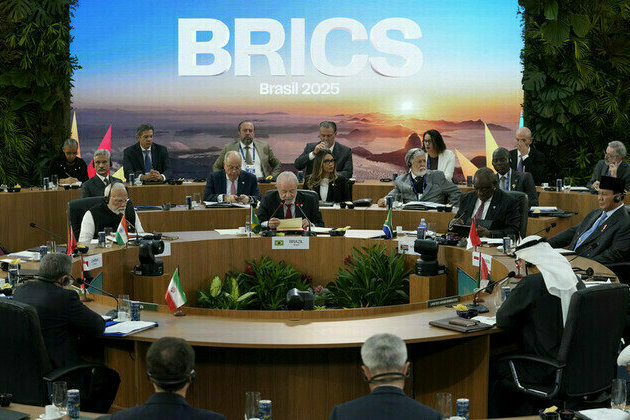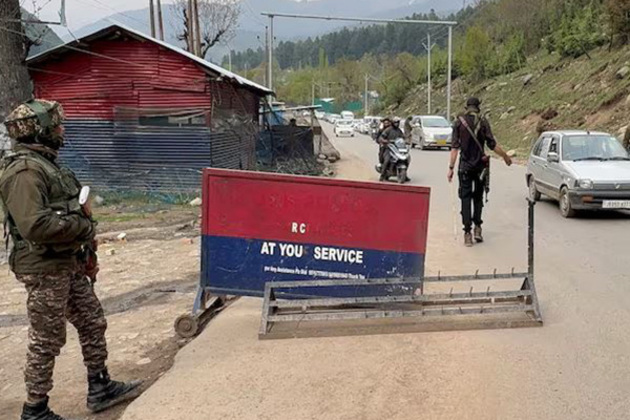What trainee science teachers in Ghana know about climate change
The Conversation
09 Jun 2021, 00:13 GMT+10

Science education is critical at a time when many countries need to respond to the potential impacts of climate change and ozone depletion. Ghana, for one, has seen the need for a skilled workforce of climate scientists and well informed citizens. The country has a national climate change policy in place to achieve this.
Ghana's basic and high school science curricula include study of the greenhouse effect, climate change, and the causes and effects of ozone depletion. Elementary and secondary school teachers play a critical role in preparing the next generation of climate scientists and climate-literate citizens.
Teacher knowledge has a direct impact on what students learn. So efforts to improve climate science literacy must include attention to the ideas held by practising and preservice teachers. Their understanding of the relationship between ozone depletion and global warming, for example, could have a lasting and far-reaching impact.
We explored this in a study of Ghanaian preservice teachers. We looked at their knowledge and where they got it from, and found a mix of knowledge gaps and coherent ideas. This points to what can be done to improve teachers' knowledge of climate change and ozone depletion.
How trainee teachers scored
Preservice teachers are undergraduate students training to become teachers. We collected data from preservice science teachers enrolled in three colleges of education in Ghana. They were in their first or second year of studying for bachelor of education degrees to teach at the elementary and secondary school levels. All of them completed a survey developed specifically for the study in Ghana from existing international surveys. It was worded to fit the Ghanaian college-age population and designed to reveal participants' thinking about ozone depletion and its relationship with climate change.
Some of the participants then elaborated on their survey responses in interviews.
We conducted a statistical test to explore the knowledge structure of the participants' response on the survey. It yielded six factors related to ozone depletion and four related to climate change knowledge.
Survey and interview responses revealed that the preservice teachers could explain that stratospheric ozone is a layer of gas in the atmosphere that prevents ultraviolet radiation from reaching Earth. Yet, they could not describe how ozone forms and the mechanism of ozone destruction.
For example, one said:
More than 75% knew that the ozone layer is composed of gas, and more than 95% knew it is located in the atmosphere. Over 90% of participants recognised that the ozone layer protects Earth from ultraviolet rays by reducing the amount of ultraviolet radiation reaching Earth's surface. About three-quarters of participants incorrectly thought that the ozone layer protects Earth from acid rain.
Just under 90% of the preservice teachers knew that ozone depletion is caused by emission of chlorofluorocarbon (CFC) gases into the atmosphere, and that reducing the emission of CFC gases will reduce ozone depletion. However, 73% of them also incorrectly attributed ozone depletion to the emission of carbon dioxide, 73% attributed it to deforestation, and almost 87% agreed that planting trees at scale would reduce ozone depletion.
Some of the preservice teachers confused climate change with changes in weather and seasons. For example, one said:
However, they could explain how human activity like deforestation and burning fossil fuels contributes to climate change. About three-quarters of preservice teachers incorrectly thought that an increased greenhouse effect would cause more ultraviolet rays to reach the Earth's surface, and a greater risk of skin cancer. Again, the majority of them correctly identified that a stronger greenhouse effect would lead to a hotter climate (79% agreement) and increased glacial melting (69% agreement).
About 88% of the participants thought climate change and ozone depletion were causally linked - either ozone depletion caused climate change, or climate change caused ozone depletion.
They identified textbooks (80%), instructors (64%) and the media (62%) as the main sources of their ozone depletion and climate change knowledge.
Science education in Ghana
We identified a mix of knowledge gaps and coherent ideas that offer ways to build on teachers' knowledge of climate change and ozone depletion. Our participants were, in general, highly confident of their ideas - both the accurate and the inaccurate ones. And they simultaneously held a combination of them.
We suggest that:
• Educators should identify and reinforce correct knowledge while helping students revise their inaccurate ideas.
• Ghanaian preservice and in-service teachers need intensive professional development that stresses the differences between ozone depletion and climate change as well as their causes and effects, and ways to mitigate their impacts.
• Science educators should critically evaluate textbooks as potential sources of climate misconceptions.
Author: Samuel Cornelius Nyarko - PhD Candidate, Western Michigan University 
 Share
Share
 Tweet
Tweet
 Share
Share
 Flip
Flip
 Email
Email
Watch latest videos
Subscribe and Follow
Get a daily dose of Kenya Star news through our daily email, its complimentary and keeps you fully up to date with world and business news as well.
News RELEASES
Publish news of your business, community or sports group, personnel appointments, major event and more by submitting a news release to Kenya Star.
More InformationAfrica
SectionIreland batter Peter Moor announces retirement from International cricket
New Delhi [India], July 11 (ANI): Ireland batter Peter Moor has announced his retirement from international cricket at the age of 35...
Trump announces 35 per cent tariffs on goods imported from Canada
By Reena Bhardwaj Washington, DC [[US], July 11 (ANI): US President Donald Trump on Thursday (local time) announced that the US will...
"Very bad sign of things escalating in Canada, Carney's first major test on security": Canadian journalist on Kap's Cafe attack
Vancouver [Canada], July 11 (ANI): Canadian journalist Daniel Bordman called the attack on a cafe owned by comedian Kapil Sharma a...
A glimpse into Sudanese life amid scorching summer heat
KHARTOUM, July 10 (Xinhua) -- It was 2 p.m. in a displacement camp on the outskirts of Port Sudan, where the relentless sun had already...
What just happened in Rio should terrify the West
The 17th BRICS summit was more than a photo op. It was a coordinated rejection of Western power and a declaration of intent A few...
BRICS in Rio: From Global South to global power
The 17th BRICS summit was more than a photo op. It was a coordinated rejection of Western power and a declaration of intent A few...
World
SectionUS debt limit raised, but spending bill fuels fiscal concerns
NEW YORK CITY, New York: With just weeks to spare before a potential government default, U.S. lawmakers passed a sweeping tax and spending...
Nifty down 90 points, Sensex lost 370 points in opening amid weak IT earnings and tariff jitters
New Delhi [India], July 11 (ANI): Indian stock markets opened under pressure on Friday as continued tariff tensions led by US President...
"Op Sindoor reflects a significant shift in India's counterterrorism doctrine," says Defence Analyst
Washington DC [US], July 11 (ANI): The response to the April 22 Pahalgam attack reflects a significant shift in India's counterterrorism...
US Weapons To Continue Flowing To Ukraine Through NATO, Trump Says
The United States is sending weapons to Ukraine through NATO, US President Donald Trump said on July 10, a week after the Pentagon...
Netanyahu congratulates security who killed 'vile' Gush Etzion terrorists
Tel Aviv [Israel], July 11 (ANI/TPS): Israeli Prime Minister Benjamin Netanyahu spoke Thursday afternoon with the head of the Gush...
Trump announces 35 per cent tariffs on goods imported from Canada
By Reena Bhardwaj Washington, DC [[US], July 11 (ANI): US President Donald Trump on Thursday (local time) announced that the US will...


